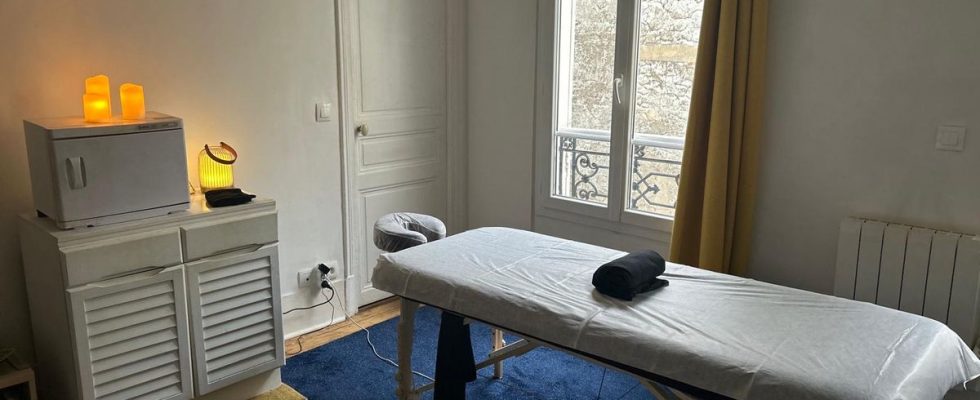“Being a massage should be a pleasant experience, without judgment or contempt,” attests Yann Croizé, founder and masseur of Maison Bergamote in Paris. “As a transgender person, healthcare spaces are not designed for me,” Noé thought. Traditional massage parlors are not aimed at all audiences, he regrets. I have already been the victim of verbal attacks there, and the masseurs always interpreted the pain for which I came to be massaged as being linked to my transidentity. »
Noé now frequents the salon Soft Spot. As The Bergamot House, it’s an LGBTI+ massage parlor. Both located in Paris, these salons are distinguished by their approach focused on the well-being of each client, regardless of their appearance or identity.
Their objective is to counterbalance traditional establishments which seem to favor a female clientele, often white, thin, wealthy and cisgender. These salons, founded by members of the LGBTI community, ensure above all that everyone feels good there, but above all welcome.
Well-being for all
“When I hear clients tell me that they have already been refused entry into institutes or salons because they are transgender, I tell myself that there is a problem in the sector,” says Yann Croizé indignantly . “My salon is open to LGBTI+ people, but also to people who are overweight, or who do not shave, or who have a disability, or suffer from psoriasis or neurodevelopmental disorders with specific needs. I offer massages to everyone, without asking indiscreet questions, and it also attracts heterosexual allied clients who feel more comfortable in my salon than in a traditional institute,” says Yann Croizé who was the first, in 2021 , to open such a salon in France.
“In the LGBTI+ community, we attach quite a lot of importance to therapies. But there is still a taboo around the body, because it is something very delicate. So I told myself that it was necessary to have a space where the well-being of the body is possible, especially when you are LGBTI + and your relationship with the body is difficult,” says Gwen, founder of Soft spot. Lesbian and masculine, she wants to respond to a need of which the LGBTI + community is not yet aware. With her personalized massages, she accompanies each of her clients during sessions lasting 45 minutes to 1.5 hours. “My massages are aimed at all those people who have never been really comfortable with the idea of going to a salon. »
A massage like any other, an extraordinary welcome
Since 2021, Yann Croizé has been offering different types of massages for the back, feet, hands, and even the whole body. To make sure his clients feel comfortable, he starts by asking them to fill out a form to understand their needs and determine which body parts they want massaged. Before each session, he takes 15 minutes to explain how the massage will take place to avoid any surprises.
For her part, Gwen takes a more personalized approach. She adapts her massages according to the needs of each client, who only has to choose the duration of the session. Just like Yann, she talks with her clients to find out which parts of the body they want or don’t want to have massaged.
“I find that there is a big difference in the way we are welcomed,” says Noé. At Soft Spot, Gwen is very attentive and knows how to put us at ease. His massages are much more suited to each person, and the atmosphere is warm, which is immediately relaxing.” Noé has tried both traditional and LGBTI+ massage parlors as a transgender man, he infinitely prefers the latter.
Other salons need to improve
“I have clients who have already cried tears of joy after a massage. It was the first time that we treated them with dignity,” confides Yann Croizé, affectionately nicknamed Tata Bergamote (a nod to the name of his salon). He wants to expand his customer-focused method nationwide and emphasizes that much progress remains to be made in the wellness and beauty sector. Much like Gwen with Soft Spot, he encourages masseurs and salons to make an effort to be more inclusive. In order to make its services accessible to as many people as possible, it has even set up a solidarity fund for LGBTI+ people in precarious situations, while maintaining fixed prices. “I hope that companies like Yves Rocher, Marionnaud, etc., will take an example from us and make efforts towards inclusiveness,” he concludes.
In the same spirit, Gwen has introduced a day with flexible prices. “Unfortunately, at the moment, I am in a space that is not wheelchair accessible, but disability should not be a contraindication to massage. I also massage people with disabilities,” says Gwen, who remains in search of improvement. In France, fewer than ten wellness and beauty salons say they openly welcome queer, overweight or disabled people.
11 rue Stephenson, Paris 75018
Head to toe, face, or back massages. You are spoiled for choice from 70 euros in the LGBTI + massage parlor or at free price for the most vulnerable.
60 rue Victor Hugo, Levallois-Perret (Hauts-de-Seine)
Massage salon dedicated to rest and community care which offers massages from 45 minutes to 120 minutes between 50 and 130 euros. On certain Wednesdays, free massages are offered.
In Bagnolet, Seine-Saint-Denis (contact on Facebook for more information)
Free price haircuts to fight against gendered prices, transphobia, racism.

